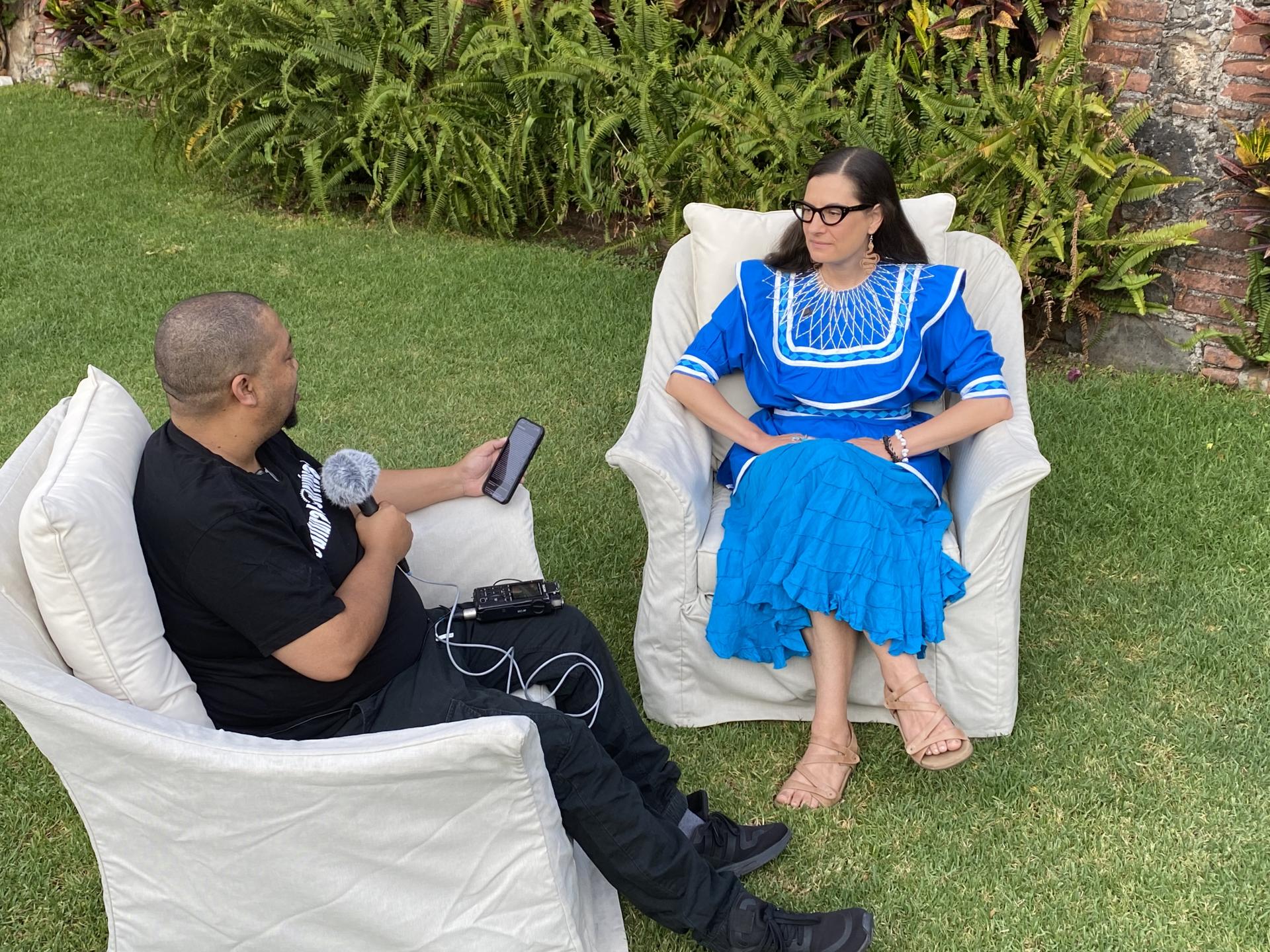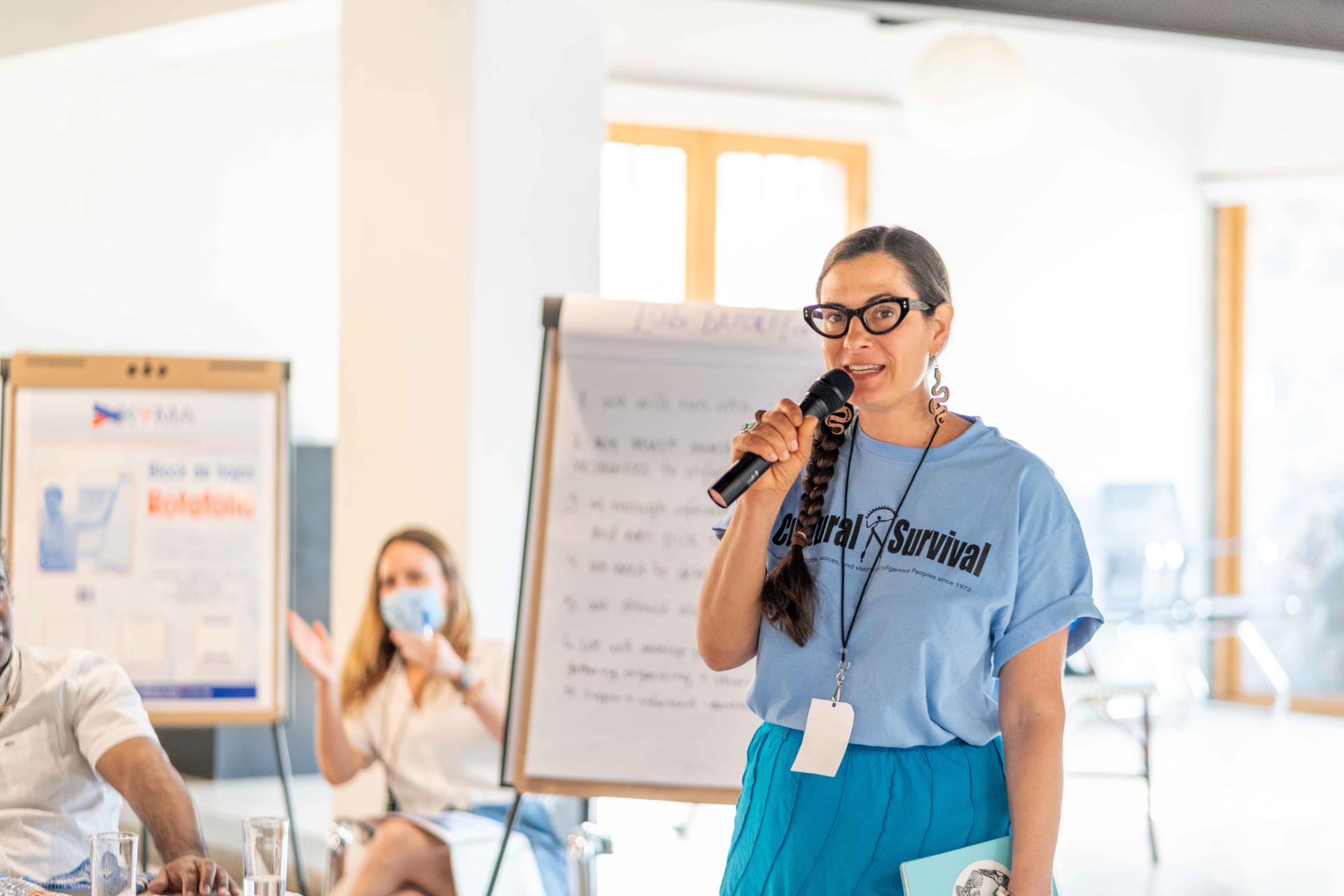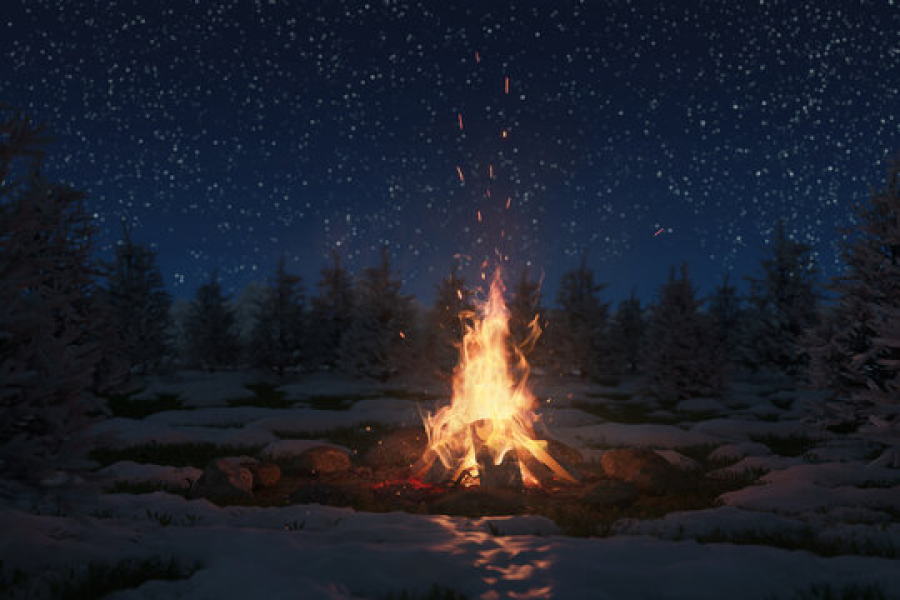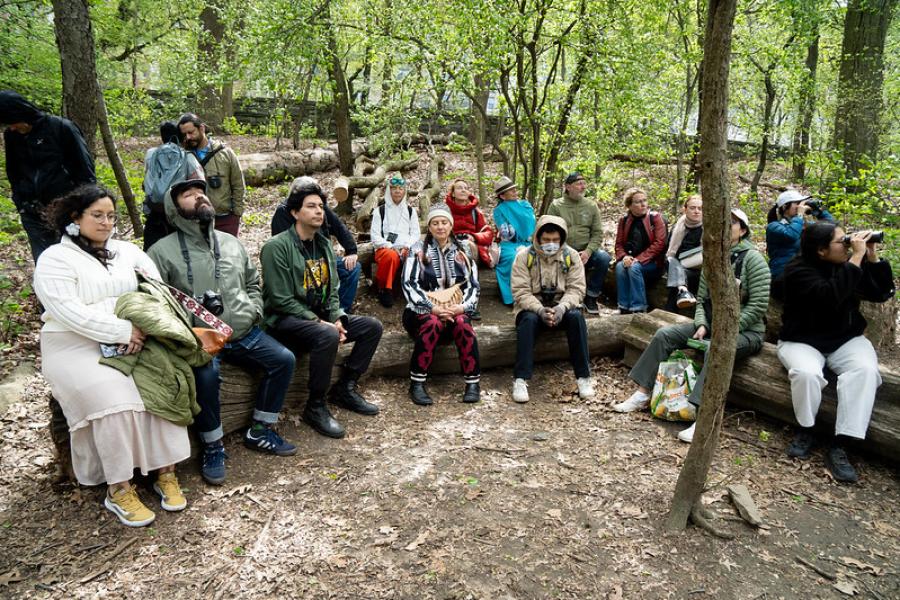
Aimee Roberson pertenece a la Nación Choctaw de Oklahoma y también tiene descendencia Chickasaw, escocesa, irlandesa e inglesa. Como estudiosa durante toda su vida de la sabiduría de la Madre Tierra, es licenciada en geología y tiene un máster en biología de la conservación. Está comprometida con la reciprocidad y la comunidad, y trabaja con la gente para garantizar que los sistemas socioecológicos de los que todos dependemos sigan floreciendo. A lo largo de su carrera, Aimee ha proporcionado liderazgo a asociaciones centradas en la administración medioambiental, la creación conjunta de una visión, la integración de valores culturales y conocimientos ecológicos con la ciencia para una toma de decisiones significativa, y la aplicación de estrategias compartidas en el cuidado de las personas, la vida salvaje, el agua y los ecosistemas. Aimee llega a Cultural Survival desde su puesto de directora de la Región Suroeste de American Bird Conservancy. Anteriormente, fue coordinadora de la empresa conjunta Rio Grande y trabajó para el Servicio de Pesca y Vida Silvestre de Estados Unidos. Aimee es cofundadora del Indigenous Kinship Circle y de Regalia Making Relatives. También forma parte de la junta directiva de la Big Bend Conservation Alliance, y anteriormente trabajó en las juntas directivas de las empresas conjuntas Rio Grande y Sonora. Shaldon Ferris (khoisan), coordinador del Programa Radio de Derechos Indígenas de Cultural Survival, habló recientemente con Roberson.

Shaldon Ferris entrevistando a Aimee Roberson.
Cultural Survival: Tienes formación en geología y biología de la conservación. ¿Cómo llegaste a esta línea de trabajo, la defensa de los Pueblos Indígenas en el contexto de la conservación y la administración?
Aimee Roberson: Desde niña siempre he estado enamorada de nuestro mundo natural. Me encanta estar en la naturaleza, escuchar a los pájaros, aprender sobre las plantas y todos nuestros parientes del mundo natural. Cuando me planteé ir a la universidad, pensé en periodismo y en derecho medioambiental. En última instancia, lo que realmente quería era comprender mejor a la Madre Tierra y su funcionamiento. Para mí, la geología ha sido una base increíble para entender los procesos geofísicos del funcionamiento de la Tierra y los cimientos de toda la vida. He llegado a comprender que todo está interconectado y que es necesario tener una perspectiva mucho más amplia de nuestro mundo para ser buenos administradores y conservar la biodiversidad.
Cuando fui a la escuela de posgrado, quería volver a la idea de cuidar nuestro medio ambiente, así que elegí estudiar biología de la conservación. Me di cuenta de que una de las cosas más importantes en este contexto es la intersección de la conservación de la biodiversidad y la gestión de los ecosistemas con los Pueblos Indígenas y nuestras cosmovisiones, modos de vida y culturas. Estos temas informan nuestros sistemas de conocimiento, nuestra comprensión de que no estamos separados de la naturaleza, que somos parte de ella y que tenemos importantes responsabilidades que cumplir en los ecosistemas en los que vivimos. Se hizo evidente que los círculos conservacionistas dominantes no hablaban de esto. No hablaban del hecho de que, aunque los Indígenas representan poco más del 6% de la población mundial, administran el 80% de la biodiversidad del planeta. De hecho, los esfuerzos de conservación a veces han hecho justo lo contrario; en lugar de honrar los conocimientos ancestrales de los Pueblos Indígenas, nos han expulsado de nuestras tierras y han hecho imposible que seamos los cuidadores. Tenemos que cambiar el paradigma, y yo me he interesado mucho en que ese cambio se realice.
Cultural Survival · Aimee Roberson Is Cultural Survival's New Executive Director!
Háblanos de tu trabajo con los Pueblos Indígenas sobre el terreno, la gestión de los ecosistemas, la protección de la biodiversidad y la planificación de la adaptación al cambio climático.
AR: Al reunirnos en comunidad con los Pueblos Indígenas de toda Norteamérica, hemos ido conociendo sus luchas, lo que hacen para garantizar la continuidad de sus modos de vida y sus culturas, y los retos a los que se enfrentan, especialmente en relación con el cambio climático. Hemos estado trabajando para ayudar a las comunidades a acceder a los recursos, ya sea financiación o, en algunos casos, asistencia técnica, para que continúen su buen trabajo, para que sigan asumiendo esa responsabilidad de cuidar la tierra, de cuidar sus culturas como parte del ecosistema.
¿Cuáles son los principales retos a los que se enfrentan los Pueblos Indígenas en la actualidad?
AR: Globalmente, nos enfrentamos a múltiples crisis. Estamos viendo un declive extremo de la biodiversidad. Estamos viendo un ecocidio, en el que los ecosistemas se están degradando hasta el punto de dejar de funcionar y no ser capaces de sustentar la vida como lo hacían antes. Y, por supuesto, el cambio climático plantea muchos retos, al igual que la desigualdad social y la injusticia. Todas estas cosas están interconectadas, y todas ellas están afectando de manera desproporcionada a los Pueblos Indígenas, que están tratando de cuidar de sus tierras y continuar con las formas de vida de sus antepasados. Vemos que factores como la colonización, el capitalismo desenfrenado y el cambio climático se unen y hacen las cosas muy difíciles para los Pueblos Indígenas. Además de las dificultades a las que ya se enfrentan los Pueblos Indígenas para mantener el contacto con sus tierras o volver a conectar con sus hogares ancestrales, el cambio climático está complicando aún más su vida y su supervivencia cultural.
¿Qué hay que hacer para resolver estos retos?
AR: Tenemos que apoyar a los Pueblos Indígenas para que hagan las cosas a su manera, que mantengan la conexión con la tierra, tengan su propia forma de gobierno, tomen sus propias decisiones y tengan autonomía y soberanía. Los Pueblos Indígenas han sido marginados de las culturas dominantes de todo el mundo a través de la colonización. Tenemos que ofrecerles apoyo adicional, ya sea financiero o técnico, para que puedan seguir viviendo como han querido. Tenemos que crear redes y solidarizarnos con los Pueblos Indígenas para que podamos aprender unos de otras y apoyarnos mutuamente.

¿Cuál es tu visión en su papel como directora ejecutiva de Cultural Survival?
AR: Cultural Survival ya tiene una visión y un propósito realmente hermosos. Estoy muy agradecida por asumir este cargo y formar parte de él. Elaine Alec, miembro de las naciones Syilx (Okanagan) y Secwépemc (Shuswap) de Canadá y directora general de Naqsmist Storytellers, define CEO como “director(a) de empoderamiento”. De esa forma veo mi papel, empoderar al personal de Cultural Survival para que continúe con el buen trabajo que han estado haciendo. Para mí, se trata realmente de ¿cómo trabajamos juntos como un equipo colectivamente? ¿Cómo desempeñamos un papel específico dentro de una comunidad más amplia de personas y organizaciones que trabajan en temas similares? ¿Cómo encontramos nuestras funciones específicas para que todos juntos podamos alcanzar esa hermosa visión? Estas son las cosas en las que pienso mientras me preparo para asumir este cargo.
CS: Mencionaste que estás aprendiendo Chahta Anumpa (lengua Choctaw), practicando artes tradicionales y cultivando y preparando alimentos tradicionales. Cuéntenos más sobre tus pasiones.
AR: Me apasiona la supervivencia y prosperidad de mis propias culturas. Una de las cosas que nos gusta hacer a mi familia y a mí es cultivar nuestros alimentos tradicionales. De mis antepasados Choctaw y Chickasaw tenemos semillas que han estado con nuestra gente, con nuestras familias, durante cientos y cientos de años. De hecho, fueron transportadas desde nuestras tierras natales cuando nos vimos obligados a recorrer el Camino de las Lágrimas hasta el Territorio Indio. Una de ellas es Chikashsha Tanchi Homma, que es un maíz rojo Chickasaw muy dulce. Otra de estas semillas es Isito, una calabaza dulce Choctaw. Son plantas emparentadas con las que hemos mantenido una relación durante cientos de años. Me encanta poder continuar esa relación.
También estoy estudiando nuestra lengua, tomando clases en línea semanalmente y aprendiendo a mantener viva nuestra lengua. Así mismo, soy vicepresidenta de la junta de un grupo sin ánimo de lucro llamado Regalia Making Relatives, donde organizamos clases culturales todos los meses y otros actos para ayudar a compartir nuestros conocimientos y conectar a jóvenes y ancianos para continuar nuestra cultura y tradiciones a través de las artes y otros conocimientos tradicionales Indígenas. Me encanta el trabajo con cuentas. Me hace muy feliz y me relaja. La Nación Choctaw de Oklahoma celebra una exposición anual de arte y hace poco me informaron de que habían aceptado mi propuesta. Es otra forma de contribuir a la continuidad de nuestra cultura. Estoy muy agradecida con nuestro pueblo, nuestros antepasados y nuestras formas de vida, y me siento honrada y humilde de poder devolver algo recíprocamente.
Ayúdenos a darle la bienvenida a Aimee Roberson (Choctaw y Chickasaw) como nuestra nueva directora ejecutiva. Estamos lanzando el Nuevo Fondo de Liderazgo de Transición para apoyar a Cultural Survival y a la nueva directora ejecutiva para que atraviesen el período de transición, aprovechen nuestras fortalezas y éxitos y guíen a la organización hacia un nuevo trabajo para abordar las realidades de un mundo en constante cambio. Esperamos poder contar con usted mientras nos embarcamos en una nueva era con un nuevo líder.
Foto superior: Aimee Roberson con miembros de Casa Tecmilco y de la emisora de radio comunitaria de Amatlán de Quetzalcóatl, Morelos, México, durante una visita comunitaria en Morelos, México. Foto por Jamie Malcolm-Brown.



